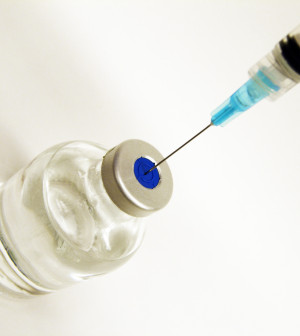- Could Your Grocery Store Meat Be Causing Recurring UTIs?
- Are You Making This Expensive Thermostat Error This Winter?
- Recognizing the Signs of Hypothyroidism
- 10 Strategies to Overcome Insomnia
- Could Artificial Sweeteners Be Aging the Brain Faster?
- Techniques for Soothing Your Nervous System
- Does the Water in Your House Smell Funny? Here’s Why
- Can a Daily Dose of Apple Cider Vinegar Actually Aid Weight Loss?
- 6 Health Beverages That Can Actually Spike Your Blood Sugar
- Treatment Options for Social Anxiety Disorder
Female Hormone Disorder Linked to Numerous Health Conditions


Women with polycystic ovary syndrome (PCOS) are at increased risk for a number of serious health problems, new research suggests.
“PCOS has profound implications for a women’s reproductive health, as well as her long-term risk of chronic illness,” wrote study author Dr. Roger Hart, of the University of Western Australia and Fertility Specialists of Western Australia, both in Perth.
PCOS is the most common hormone disorder in women of reproductive age. The condition causes an imbalance of hormones that causes a variety of symptoms, including excess weight, irregular periods, infertility and an overgrowth of body and facial hair. As many as 5 million American women have the condition, according to the U.S. Office on Women’s Health.
For the current study, published Jan. 27 in the Journal of Clinical Endocrinology & Metabolism, researchers analyzed data from more than 2,500 Australian women. They were aged 15 and older, and all had been diagnosed with PCOS between 1997 and 2011.
Compared to those without the condition, women with PCOS had a higher risk of hospitalization. Conditions included heart disease, diabetes, asthma, musculoskeletal disorders, mental health conditions such as depression, stress and anxiety, and cancer of the lining of the uterus, according to the study authors.
Women with PCOS were also more likely to have gynecological issues. These included miscarriages, ectopic pregnancies, irregular menstrual periods and endometriosis, the study found.
“Our study indicates women who have PCOS have twice as many hospital admissions as women without the condition. Additional health care resources should be directed to address the risks facing this population,” he added.
“Since only 25 percent of the women we studied were older than 40, we anticipate the rate of diagnosis would rise as these women continue to age,” Hart noted.
While the study found a connection between PCOS and additional health problems, it did not prove cause and effect.
More information
The U.S. Office on Women’s Health has more about polycystic ovary syndrome.
Source: HealthDay
Copyright © 2026 HealthDay. All rights reserved.










